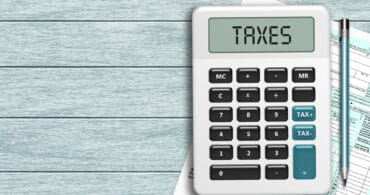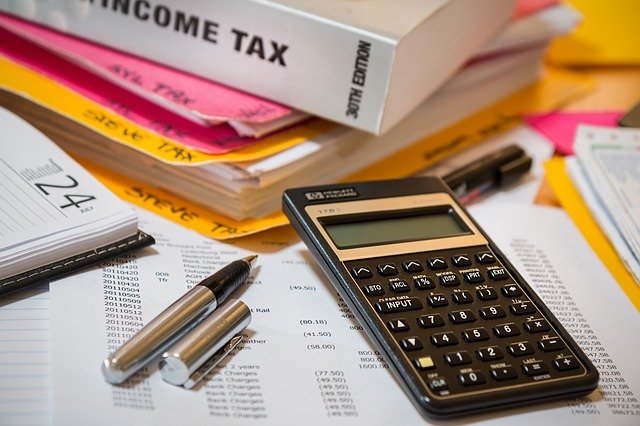Paying Tax on Rental Income: Advice for Landlords
Do I pay tax on rental income? It’s a question posed by many would-be or new landlords. It is a good question, but when it comes to taxation of rental income, there is quite a bit to understand. Let’s explore the topic in more detail as we share our experts’ knowledge on the financial side of renting property, together with their top tax tips.
Do I pay tax on rental income? It’s a question posed by many would-be or new landlords. It is a good question, but when it comes to taxation of rental income, there is quite a bit to understand. Let’s explore the topic in more detail as we share our experts’ knowledge on the financial side of renting property, together with their top tax tips.
If you are a landlord fairly new to the private rented sector, you may be wondering about your responsibilities concerning tax.
Getting things right when it comes to taxation of rental income is very important, especially if it’s a second source of income. You may wish to engage the services of an accountant, not just to ensure you pay the right amount at the right time, but also to make certain that you are claiming all you can expense wise so that you don’t pay too much. In any case, it is good for you to know your responsibilities.
How much tax is payable on rental income?
Landlords must pay tax on any profit made from renting property. How much tax you pay depends on how much profit you make, and whether you are earning an income from other sources. The latter will determine the rate of tax payable on rental income.
You can calculate your profit by taking your income, and deducting all your allowable expenses. Our guide to allowable landlord expenses will help you determine wat you can legally deduct.
Because there are different rules when it comes to claiming expenses for furnished holiday lets, you will need to work out the profit from this type of property separately from any others you have.
Similarly, overseas properties are treated separately to any properties held the UK. There’s a separate section on your tax return for declaring profits from overseas property.
How to calculate rental income?
Your rental income will primarily be made of the rent you charge. It may also include any charges made for additional services provided. These could include:
- Use of furniture
- Cleaning of communal areas
- Heating and hot water
- Water
- Broadband
- Parking fees
- Property repairs
- Non-refundable deposits
- Any money retained from a deposit to cover repairs at the end of a tenancy
Is there a tax-free threshold for rental income?
As of the start of the tax year in 2017, landlords are entitled to a property income allowance of £1,000 per year. So if you only earn up to £1,000 per year, then you won’t have to tell HMRC or declare this income on a tax return. You may be required to complete a tax return for other income, however, and do bear in mind that there are some exceptions to the rule. If in doubt, check with HMRC or consult an accountant, and always keep records of your income and expenditure, even if you don’t need to pay tax.
For rental income that falls within the £1,000 to £2,500 bracket, you will need to tell HMRC. If it falls between £2,500 and £9,999 after allowable expenses, or £10,000 or more before allowable expenses, then you will need to tell HMRC, and complete a Self-Assessment tax return.
Is it necessary to declare rental income if there is no profit?
This really does depend on your individual circumstances. If you are not required to complete a Self-Assessment tax return for any other income, and you are making a loss on your rental property, then the answer is no, you won’t need to declare the income.
To clarify, HMRC says: “If the allowable expenses are greater than your rental income you will have made a loss.”
However, if you already complete a tax return for any other business or income, then you will have a duty to include all your income, including any on which you are making a loss.
What happens if rental income is not declared?
Not declaring rental income is a risky business. Eventually, it is likely to catch up with you and you could end up with a considerable back-dated tax bill, as well as a fine. There may even be a criminal prosecution.
HMRC has access to a variety of resources in order to identify income from rental property. From checking tenant deposit scheme registers to tracking data held by local authorities and letting agents, there are many ways in which landlords can be tracked down.
If you are uncertain as to whether there is tax payable on your rental income, always check with HMRC, or consult an accountant.
How to pay tax on rental income?
If you do not usually send a tax return, you need to register by 5th October following the tax year during which earned rental income.
You will need to submit your return by 31st January for the tax year that ends on the 5th April before, and also pay any tax due by that date.
What about National Insurance?
Class 2 National Insurance is payable if your profits are £6,475 a year or more, and what you do counts as running a business. So for example, if being a landlord is your main job, you rent out more than one property, or you are purchasing new properties to let.
If your profits come in at under £6,475, then you can make voluntary Class 2 National Insurance payments, which you may wish to do in order to ensure you receive the full State Pension.
Property management for Croydon landlords with guaranteed rent from homes2let
As a landlord, dealing with taxation of rental income is just one of the many responsibilities you face. If you would rather hand over some of these responsibilities, such as sourcing and referencing tenants, property repairs and maintenance, legal obligations and all the other day to day running tasks, homes2let has the service you need. Plus it’s all wrapped up in a reassuring guaranteed rent scheme.
To learn more, you are welcome to get in touch with our helpful, expert team which amongst them has many years of experience in property lettings.
Related Insights

The UK’s Landmark Shift: Empowering Homeowners with Commonhold
The UK is embarking on a significant transformation of its property ownership system, shifting from the traditional leasehold model to commonhold. This reform aims to empower homeowners by granting them outright ownership of their properties and a share of the communal areas, eliminating hidden fees and fostering a sense of shared responsibility. By transitioning to commonhold, the government seeks to create a fairer and more transparent system, providing long-term security and greater control for residents. This shift marks a fundamental change in how properties are owned and managed in the UK, promising to reshape the landscape of homeownership.

Government Gas Boiler Ban: How Should Landlords React?
By 2025, gas boilers and other fossil fuel powered heating and hot water systems will be replaced by renewable heating systems in all new-build homes. This is part of a government drive to achieve net-zero CO2 emissions by 2050. The ‘Future Homes Standard’ is also aimed at lowering fuel bills. But how will the move affect private landlords?

Making Tax Digital for Landlords Explained
Making Tax Digital (MTD) for landlords has been in the pipeline for a while, but soon the time will come for property investors turning over £10,000 a year or more to start reporting tax on a quarterly basis and filing online. The key date is 6 April 2023, which may sound a way off yet, but preparation is crucial. Here’s what you need to know as a landlord about Making Tax Digital so that when the time comes, you’re all set to comply with the new rules.







